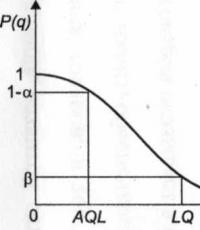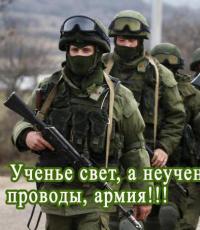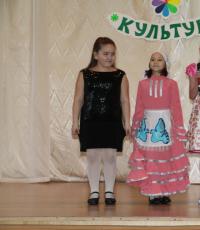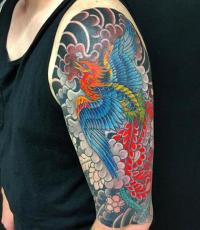Creative report script in Tatar language. Scenario of the festival of national cultures. Children enter the hall to the sound of a Tatar folk melody
Subject: Festival of the Peoples of the World. Tatars.
Target: Introduce students to the culture of the Tatar people.
Tasks:
Enrich students' knowledge about the culture, customs, and traditions of the Tatar people.
To cultivate tolerance and aesthetic taste.
Promote the development of a sense of rhythm, ear for music, memory, speech, attention.
Equipment: presentation of “Tatars”, national costumes (male and female), traditional dish.
The performance lasts 5-7 minutes and is accompanied by a presentation.
Slide 1.
The anthem of Tatarstan sounds. Everyone stands still.
Slide 2.
Kazan is our ancient city
Already a thousand years old
One of the best
In Russia there are cities.
Always with all the cordiality
Ready to meet friends.
Here our city stands on the Volga,
Surrounded by pine forest.
Slide 3.
And this is our ancient Kremlin,
Enclosed by a white wall.
Slide 4.
And this is Kul-Sharif shining
There are a thousand lights in the sky
And at the same time he protects us
From gray and aimless days.
Slide 5.
And next door, updated,
Our Annunciation Cathedral,
Slide 6.
And the Syuyumbike tower bowed
In their stone agreement.
Slide 7.
Everything is in harmony here, here is the heart
Our capital, our Kremlin.
And a city grows nearby,
The story will be told about him in verse...
There are many people living in our city,
Peace and friendship are forever present here.
Together in sorrow and in joy they are together
They share their own holidays for everyone.
Song "Tugan Yak".

Slide 8.
We have many traditions:
For the bride and groom - Nikah,We slaughter a lamb on holiday,
So that there is no war in the world.
Slide 9.
Kurban Bayram and Ramadan,
There are still times when there is a rush,
And in the summer the Sabantuy holiday
Everyone is walking! Sing and dance!
Slide 10.
Sabantuy is a fun holiday!
Show yourself horseman,
Be both dexterous and brave,
And prove your skill.
Slide 11.
Our costumes are good!
They were embroidered from the heart
Kalfak is on our head,
And on the feet are boots.
The girls have an apron,
The guys have a vest.
We keep traditions
We will pass them on to our grandchildren.
We are the ancient Tatar people,
We have many traditions.
We all know how to welcome guests,
We sing and dance, just great!
We have fun here and there
The legs dance on their own!
Tatar dance.

Slide 12.
You have never seen such deliciousness anywhere,
We have a kystyby,
We have Gubadiya.
The famous chak-chak is served to all guests,
Everyone loves ballish
Everyone bakes echpechmak.
Dear jury, don’t take it for a bribe,
Respectfully accept gifts from the people.

Slide 13
Presenter 1:Good afternoon! We are starting the Festival of National Cultures of the Peoples of Russia
Presenter 2 On our big, blue planet Earth there is the most wonderful country in the world - Russia! Russia is a multinational country. In total, people of 160 nationalities live in the country, 23 nations numbering over 400,000 each.
Presenter 1.And children of various nationalities study at our school. And for all of us, Russia is the Motherland, despite the differences in national culture, faith, language and traditions.
Friendship of peoples is not just words,
The friendship of peoples is forever alive.
Friendship of peoples - happy children,
Ear of corn in the field and strength in bloom
Presenter 2
At our festival today, participants will introduce us to their national culture and delight us with their talents. Well, since this is a competitive program, there must be a fair jury that will evaluate the merits of all the performers on this stage.
Presenter 1
Students’ performances are assessed by a competent jury consisting of:
1.___________________________________________________
2.________________________________________________________
3._____________________________________________________
Presenter 2
Russians, Kazakhs, Tatars and Armenians,
We are black, and blond, and dark, and white.
In Russia - on our native land,
We all live as a big and friendly family.
Presenter 1
Oh, Armenia, you are the decoration of the planet -
You have been sung by poets a thousand times.
You are like a dream of a divine miracle.
You are inhabited by beautiful people,
Their skin is dark and their eyes are shining.
Armenian nights are full of aromas,
Armenian days are like a handful of gems.
There is sun, there are mountains, there is eternal summer.
Presenter 2 We invite 9th grade to the stage (class teacher Natalya Nikolaevna Kapralova)
(9th grade performing)
Presenter 1 Our festival in a single round dance
- People from all sides will gather here
- Dear people's land,
- What we call homeland with you.
Presenter 2 Different peoples have lived in Russia for a long time. Some like the taiga, others like the expanse of the steppe.
Each nation has its own language and dress.
One wears a Circassian coat. The other one put on a robe.
One is a fisherman from birth. The other is a reindeer herder.
One is preparing kumiss. The other one prepares honey.
Presenter1 Ukraine is a country of soulful lyrical songs, the birthplace of Nikolai Gogol and Taras Shevchenko. The culture of Ukraine has ancient roots.
Presenter 2 Oh, how beautiful UKRAINE is!
Her Taurian fields,
Its meadows, forests, hillocks
And fertile land.
We invite 8th grade to the stage (class teacher Olga Vladimirovna Pestova)
(8th grade performs)
Presenter 1 How many of us, non-Russians, does Russia have?
And Tatar and other blood,
The names of those who bear them are not simple,
But ordinary Russian sons!
Let others not favor us,
But forever - neither tomorrow, nor now -
It is impossible to separate us from Russia -
The homeland is unthinkable without us!..
Presenter 2. We invite 8th grade to the stage (class teacher Sulaeva Svetlana Nikolaevna) who will introduce us to the culture of the Kazakh people
(8th grade performing)
Presenter 2 Jews lived in harmony with Russians in ancient times,
Evidence - morals, habits, vocabulary.
And we became close friends with the Russian people for a long time,
They stand together in all trials.
Such kinship can never be forgotten -
We are tightly connected by a thread of history!
Fortunately - with any people on an equal basis -
We have the right in our native country!
Presenter 1 We invite 11th grade to the stage (class teacher Olga Petrovna Razumova)
(11th grade performing)
Presenter 2 For a number of centuries, Gypsies remained a kind of mystery to science. Centuries have passed since they left their ancient homeland and scattered throughout the world. Gypsies are the collective name for about 80 ethnic groups, united by a common origin and recognition of the “Gypsy law”.
Presenter 1 At the river mouth there are colorful tents.
The horses were hobbled and fires were lit.
It’s strange to meet a free camp under the trees -
With the ancient nomads of the living gypsies!
Presenter 2 We invite 10th grade to the stage (class teacher Anna Vladimirovna Glebova)
(10th grade performing)
Presenter 1 Russia! Rus! My native country!
I share pure love with you,
You are the only one who is forever sacred to me.
I bow to you low to the waist.
Presenter 2 You have raised many generations,
You always led the people,
You believed with all your heart without a doubt,
She did good deeds with people.
Presenter 1 We are Tatars and Russians, Georgians and Karelians.
We are black and blond, We are dark and white,
We are schoolchildren of the same age, good friends!
We live in Russia together - We have one family!
Presenter 2 Our Festival ends with 9th grade (class teacher Irina Valerievna Kosycheva). The guys introduce us to Russian national culture (9th grade performs)
Presenter 1 Tolerance is a foreign word,
But it’s been clear to everyone for a long time,
Be tolerant of the distant or the strange,
Detached, as if in a movie.
We're not talking about indifference here.
And no one talks about callousness.
Delicacy and patience towards the living
Close by, it won't hurt us at all.
Presenter 2:
Be tolerant of everything else:
To faith, views, thoughts and clothes
And then, perhaps, it is clear to everyone,
Quiet hope will glimmer.
That we can live so different,
In this world of perpetual motion
And to gain tolerance
You just need a feeling of respect.
Presenter 1 We thank everyone who took part in our event. We are waiting for the jury's decision
Jury table
| Evaluated | ||||||
| Compliance of the content with the given topic; | ||||||
| Style decision; Musical arrangement; | ||||||
| Artistry, sincerity, connection with the audience, simplicity, active position of the performer; | ||||||
| Stage culture, props, costumes, matching musical material | ||||||
| Performance culture (participant’s appearance, aesthetics) |
Presenter: Good afternoon dear friends! It is no coincidence that we have gathered today. Today we have a big holiday - International Mother Language Day. And in this hall representatives of different nationalities gathered to sing the praises of their great native language.
Each nation has its own characteristics, traditions, and culture. All this distinguishes each nation from each other. This is what makes people proud of their language.
It has become a good tradition in our kindergarten to celebrate Mother Language Day, where pupils of each nationality fascinate us with the culture of their people and envelop us in the warm air of friendship. After all, our republic is the most multinational in Russia.
And I will be the first to invite representatives of Tatar nationality to join us.
1 point . Hәerle kөn, isәnmesez kaderle kunaklar!
2 points. Isanmesez diep suz bashlyimyn
Tanyshular shulai bashlana.
Isanmesez diep suz bashlasam
Bakhetem arta, kүңlem shatlana.
3 points: Without Tatarlars! Shushi isem belan
Җirdә yashәү үze ber bәkhet,
Yashibez without bu җirda
Bar halyklar belen berlishep!
Presenter: Rәkhmat. Representatives of Russian nationality are invited.
1 child. Good afternoon dear friends!
2nd child. Hello, dear parents!
3 child. Our Tatarstan
Famous for friendship
We should live in Tatarstan
I really like it.
1 child. Today is a good day for us
Everyone around is having fun
They dance and clap their hands
Well, we are not lagging behind.
Leading: Thank you. And I invite the next nationality. Meet the baptized Tatars.
1 child: Isanmesez, kaderle kunaklar!
2nd child: Salam, duslar!
3rd child: Duslar bulyp yashik gөrlәp
Ohshash bezneң tellur, gadatlar
Tynychlyk һәm duslyk chәchәk atsyn
Urtak bezneң җirdә telәklәr.
Leading: Thank you. Representatives of Udmurt nationality are invited
1 child : Zech bures, gazhano eshos!
2nd child. Shundy sweat, shundy sweat
Military nanny is very reliable,
Syaska derem kuzmalo.
Shundy-mummy, sweat, sweat,
Pilem-uncle, cat, cat.
Leading : Thanks everyone. The great Tatar poet Gabdulla Tukai was right when he wrote:
We sang songs with the people of Russia
There is something common in our everyday life and morality,
Years passed one after another -
We joked, we always worked together
Our friendship cannot be broken forever.
We are strung on a single thread.
People's memory stores a thousand melodies. They are the priceless heritage of our ancestors. Every nation is rich in songs. In the old days they said, “Where many songs are sung, life is fun.” And the Tatar folk music page openssong “Ommegolsem”
Presenter : Rәkhmat. The next word is given to the Russians.
Song "In the Blacksmith"
Presenter: Thank you. Meet the baptized Tatars.
Song “Argy yaktan kildenme”
Presenter: Thank you. Now let’s listen to an Udmurt folk song
Song "Kinyos lyktilyam"
Presenter: Well done! Dance is a special kind of art. It reflects feelings; through dance we understand the world. Dancing is also an excellent cure for many diseases, blues and boredom. It's time for folk dancing.
Your attention Tatar folk dance
Presenter: Thank you. MeetRussian folk dance.
Presenter: Well done. For you Tatar-Kryashen dance “Chyn-chyn әitemen”
Presenter : Rәkhmat. And ends the dance page
Udmurt folk dance
Presenter: Thank you everyone for the wonderful dance performance
Magic wand, please
Let us in through the gates, open up miracles.
My friend, wand, look
Don't lead us and the children down!
Games are ahead of us.
Let's play Tatar folk game “Tubәtay”
Russian folk game “Burn, burn, clear”
Folk game of baptized Tatars “Plague Urdak, Plague Kaz”
Udmurt folk game “Water”
Presenter: Tatarstan is a multinational republic. In this regard, culinary traditions are very diverse. Every nation has its own culinary traditions. And today we will see what our guests will delight us with..
Tatars: Chak-chak is a symbol of the hospitality of the Tatar people and a sweet gift for any occasion. After celebrating the millennium of our capital, almost the whole world learned about this wonderful, delicious delicacy. On the one hand, it symbolizes “sunny Tatarstan” with its bright color, on the other – the cordiality, friendliness and unity of the Tatar people, and all peoples living on the fertile land. However, the most important thing in any dish is the taste. As they say, it's better to try once. Bon appetit!
Russians: Pelmeni is a traditional Russian dish, hearty and tasty. There are many recipes for making dumplings, which differ in size, filling, and cooking method. But classic dumplings are a win-win option, simple and tasty, a way to feed the whole family. Dumplings are a mysterious and almost magical dish; it is no coincidence that in some areas dumplings were called sorcerers. Learning how to cook them is quite simple, just like becoming a connoisseur and a real dumpling gourmet. Believe me. the taste of real dumplings is worth it
Baptized Tatars: The national cuisine of baptized Tatars is rich in its cultural traditions, dating back centuries. Over the centuries-old history, unique customs of national cuisine have developed, which have retained their popularity to this day. Tabikmek is the national dish of baptized Tatars. Traditional tabikmek is a lean flatbread stuffed with mashed potatoes or millet milk porridge, generously greased with butter. It is very tasty and satisfying, can be served as an independent main dish, and good for breakfast with sweet tea. Bon appetit!
Udmurts: The cuisine of Udmurtia is rich in its national traditions. A pronounced national flavor of Udmuurt cuisine is given by milk-flour mixtures, which are baked with the addition of meat, mushroom or vegetable fillings. A striking example of this is perepechas - dough baskets with various fillings. Perepechi in Udmurtia are considered a festive dish. They are prepared for a big guest, on a celebration or holidays. This dish is only served hot, straight from the oven, because they are prepared in front of the oven in the old fashioned way, hence the name rebake.
Tatars:
Tөrle-tөrle telә soylәshsәk tә
Tөrle-tөrle millәt bulsak ta
Tik ber beznen tugan ilebez
Shunda dus һәm tattoo yashibez
Russians:
Russians, Kazakhs, Tatars and Armenians,
We are black, and blond, and dark, and white
In Tatarstan on our native land
We all live as a big and friendly family.
Baptized Tatars:
Friendship of peoples is not just words
The friendship of peoples is forever alive.
Friendship of peoples, happy children,
The ear is in the field and strength is in full bloom.
Udmurts:
There are few of us Udmurts,
Our Motherland is small.
But today is our road
Wide as the Kama River.
Presenter : Today we saw how children of different nationalities sing and dance. They speak different languages, but they all love their home, family, their homeland, they want to live fun, friendly and peacefully.And we will finish our holiday “Round dance of friendship.”
“Festival of the Peoples of Russia.
Tatars."
Target: Increasing the culture of interethnic and interethnic relations among the younger generation, introducing students to the traditions of national cultures through the creativity of different peoples of Russia.
Tasks:
formation of a tolerant consciousness and attitude among the younger generation,
rejection of intolerance,
fostering a friendly attitude towards each other,
arouse interest in the culture, national traditions and customs of different peoples,
develop creative and communication abilities,
involve large groups of students in the process of working on the project.
On stage is a Tatar wagon, an exhibition of Tatar household items, national attributes, costumes.
All participants are in Tatar national costumes.
A Tatar melody sounds.
1st Presenter:
Russia! Words can't measure you
You can’t walk around your spaces even in a year
2nd Presenter:
With you as with a mother. Friendly family
My people live brightly and happily!
2nd Presenter:
-No Tatarlars!
Shushi isem belan
Җirdә yashәү үze ber bәkhet.
Without - Tatarlar!
Yashibez without hirdә
Bar halyklar belen gөrlәshep.
1st Presenter (translation):
We are Tatars, and we are proud of it!
Years passed one after another,
We always joked and worked together.
Our friendship cannot be broken forever.
We are strung on a single thread.
2nd Presenter:
-No Tatarlars!
Tatars without
Gorur yortә torgan ber halyk,
Without Tatarlars!
Shulay diep beli
Bezne boten donya, bar halyk.
1st Presenter:
We laid a trail on Russian soil,
We are a pure mirror of the years we have lived.
We sang songs with the people of Russia,
There is something common in our everyday life and morality.
2nd Presenter:
Bәyrәmnәrdәn bәyrәmnәrgә kuchep
Yyrlyyk әle, biik әle, һay!
Eshebez dә bәyrәm kebek bulsyn
Һәр kөnebez bulsyn also may.
1st Presenter:
Tatars are one of the largest Turkic-speaking ethnic groups. The Tatar people have gone through a long path of historical development and had their own statehood in the past.
2nd Presenter:
Tatars are a Turkic people living in the central regions of the European part of Russia, in the Volga region, the Urals, Siberia, Kazakhstan, Central Asia and the Far East. The number in Russia is 5554.6 thousand people - 3.83% of the Russian population. The Tatars are the second largest people in Russia after the Russians.
1st Presenter:
They are divided into 3 ethno-territorial groups: Volga-Ural, Siberian and Astrakhan Tatars. Each group has long existed and developed an independent culture that reached a high level for its time. The Tatar people value and cherish their cultural heritage.The oral folk art of the Tatars includes epics, fairy tales, legends, songs, riddles, proverbs and sayings.
2nd Presenter:
Agree, folklore is not only folk wisdom. This is also a manifestation of the soul of the people. You cannot confuse a Ukrainian song with a Georgian one, just as you cannot confuse a Tatar tune with a Russian tune. Because each of them is a product of the entire life of a people, its history, its way of life. We present to your attention the Tatar song “Nightingale”.
A song is playing.
1st Presenter:
“The culture of every nation is a pearl on the carpet of civilization,” said writer Fazil Iskander.Each nation has its own characteristics, traditions, culture and language. All this distinguishes each nation from each other. This is what makes people proud of belonging to a particular nation.But they are united by their love for folk festivals and holidays.
2nd Presenter:
The Tatar people have many religious holidays: Nowruz, Haid Beyreme, Ramadan, which are celebrated after Uraza - the great Muslim fast, which is observed not only by Tatars, but by all Muslims.And Sabantuy is the most famous national holiday of the Tatars, which is held in June. What is Sabantuy and what significance does it have for the Tatars? This is truly a national entertainment and at the same time sporting event. On it all people have fun and move out. They cook and eat national traditional dishes, play, sing and, of course, dance!
Pupil :
The soul of the Tatars and Bashkirs is hidden in Sabantuy,
Wherever they lived - in Kazan, in Moscow.
From Astrakhan to Perm, from the Volga to Kamchatka
We give a holiday to our entire country.
Tatars of Astrakhan and Kazan
Siberia, Crimea, Penza and Perm,
We have our own language, song, dance,
And we have cherished our holiday for centuries.
Dance "Sabantuy" is performed
1st Presenter:
The family rituals of the Tatars have evolved over centuries based on the life cycle of people: birth, naming, circumcision, wedding and funeral rites. Over the centuries, the circle of family rituals changed, much was forgotten, but birth and naming were important in the life of a Muslim.
2nd Presenter:
The first family holiday of the newlyweds is the naming ceremony of the first-born. The old people call this day “Baby May” or “Child’s Feast”.
After three days of the baby's life, it is necessary to give him a name.
1st Presenter: Parents, having decided what name they will give to their child, prepare for this day. They are afraid of the evil eye and for this purpose they draw a red or black spot on the child’s forehead. The child's parents need to make a sacrifice: slaughter a good, fattened sheep. The meat must be divided into three parts: give one part to the poor, the second to neighbors, and keep the third for yourself.
2nd Presenter : The father had to greet the mullah and all guests with great respect.
Scene "Naming".
1st Presenter: Not a single Muslim holiday is complete without food. Festive food should be tasty and varied, high in calories and rich in vitamins. A beautifully set table, elegant dishes, the aroma of hot dishes, and the bright colors of juicy fruits and oriental sweets add a special joy to the shared meal.
2nd Presenter: The phrase “Tatar hospitality” has almost become a catchphrase, a symbol that the guest will have a great time and go home happy and satisfied.
1st Presenter:
The higher a person’s national self-awareness, the more careful his attitude towards the culture and traditions of another people, the more respectful and fruitful his relationships with people of another nationality. You cannot understand another culture without renouncing your own.
2nd Presenter:
The Fatherland gave birth to us,
Friendship is as strong as granite.
Our strength lies in this friendship.
Our friendship is forever.
And let the fun roll
Every year again and again.
To our brothers, to our sisters
We give songs and love!
A Tatar folk melody is played, the participants treat the audience to national delicacies, and hand out booklets.





